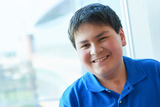

With all of the changes related to the COVID-19 pandemic, families have had many questions and concerns about the possible return to school in the fall. We recognize that making the decision to send your child to school during this time is not an easy one. We wanted to provide you with some general guidelines in an effort to help you safely make these decisions for your family. Please keep in mind that COVID-19 activity may change at any time. As a result, you may need to consider making adjustments as the situation and circumstances may change.
Children being treated for cancer have varying degrees of immunosuppression, so there is not one guideline for participation in school and related activities that fits for all children. In addition to the curriculum, the psychological and social benefits of attending school in person are significant and should be weighed against the risk of attending. Each child’s individual situation should be considered and discussed with their oncologist.
Some general principles
- In-person participation should be more limited in times of very high viral transmission in the community.
- Children who are extremely immunosuppressed should consider remote schooling at this time. Your doctor may prove to be a good resource in helping you make this determination.
- The school should have a good plan for social distancing of both children and adults.
- We recommend that you are confident in the school's ability to ensure that the school staff will adhere to established guidelines for masking, hand hygiene, self-monitoring, and exclusion from school when ill or exposed.
- The ability of the immunosuppressed child to understand and comply with social distancing and masking rules should be taken into consideration.
- Siblings, family members, caregivers and friends in contact with the child should abide by the same guidelines.
Additional considerations
- Your social worker and child life specialist can share some helpful tips on how to talk with the school staff to prepare for your child to return to school (i.e.: homebound instruction/special education needs). They can also share helpful tips on preparing your child for returning to school.
- If your child receives special education services, those services should continue whether your child is learning online or in person. Make sure you understand how services will be delivered and, if needed, request a new written plan to address your child’s needs.
- What is the school’s plan around social distancing and masking, how will they monitor this for students, and how will they enforce guidelines with students about social distancing and masking?
- How will the school inform families if there is a rise in infections?
- Partner with your child’s teacher(s) to identify additional ways to keep students safe i.e.: desk placement, wiping down of classroom furniture, having hand sanitizer on hand for students/staff, etc.
Education resources
The Cancer Center has created a list of resources that you may find helpful during this stressful time.
Featured in this article
Specialties & Programs

With all of the changes related to the COVID-19 pandemic, families have had many questions and concerns about the possible return to school in the fall. We recognize that making the decision to send your child to school during this time is not an easy one. We wanted to provide you with some general guidelines in an effort to help you safely make these decisions for your family. Please keep in mind that COVID-19 activity may change at any time. As a result, you may need to consider making adjustments as the situation and circumstances may change.
Children being treated for cancer have varying degrees of immunosuppression, so there is not one guideline for participation in school and related activities that fits for all children. In addition to the curriculum, the psychological and social benefits of attending school in person are significant and should be weighed against the risk of attending. Each child’s individual situation should be considered and discussed with their oncologist.
Some general principles
- In-person participation should be more limited in times of very high viral transmission in the community.
- Children who are extremely immunosuppressed should consider remote schooling at this time. Your doctor may prove to be a good resource in helping you make this determination.
- The school should have a good plan for social distancing of both children and adults.
- We recommend that you are confident in the school's ability to ensure that the school staff will adhere to established guidelines for masking, hand hygiene, self-monitoring, and exclusion from school when ill or exposed.
- The ability of the immunosuppressed child to understand and comply with social distancing and masking rules should be taken into consideration.
- Siblings, family members, caregivers and friends in contact with the child should abide by the same guidelines.
Additional considerations
- Your social worker and child life specialist can share some helpful tips on how to talk with the school staff to prepare for your child to return to school (i.e.: homebound instruction/special education needs). They can also share helpful tips on preparing your child for returning to school.
- If your child receives special education services, those services should continue whether your child is learning online or in person. Make sure you understand how services will be delivered and, if needed, request a new written plan to address your child’s needs.
- What is the school’s plan around social distancing and masking, how will they monitor this for students, and how will they enforce guidelines with students about social distancing and masking?
- How will the school inform families if there is a rise in infections?
- Partner with your child’s teacher(s) to identify additional ways to keep students safe i.e.: desk placement, wiping down of classroom furniture, having hand sanitizer on hand for students/staff, etc.
Education resources
The Cancer Center has created a list of resources that you may find helpful during this stressful time.
Contact us
Cancer Center